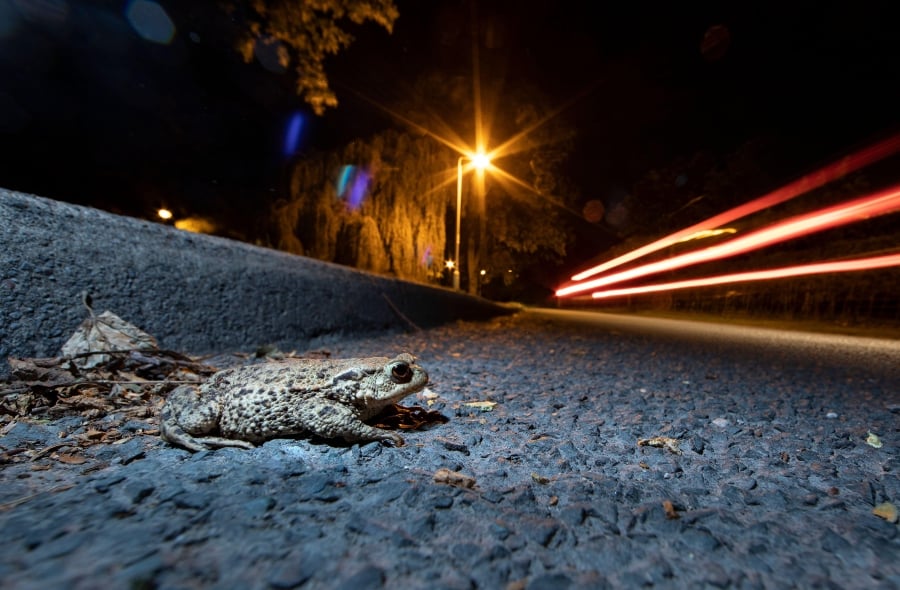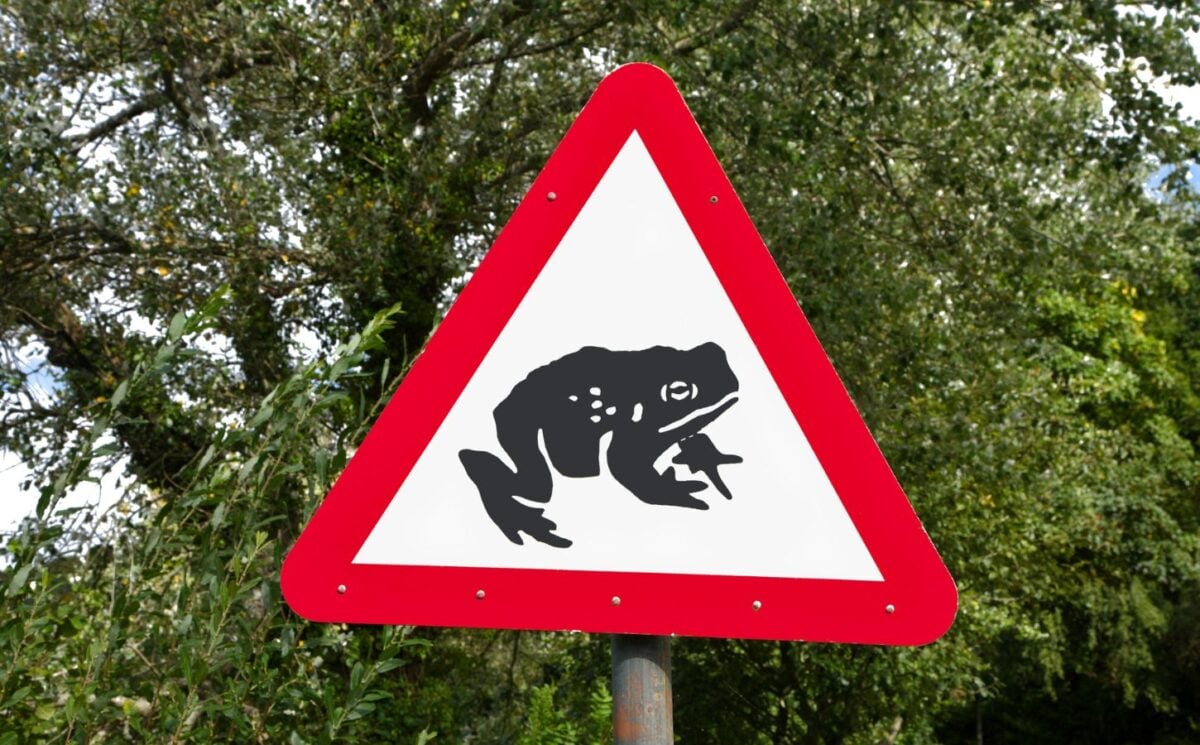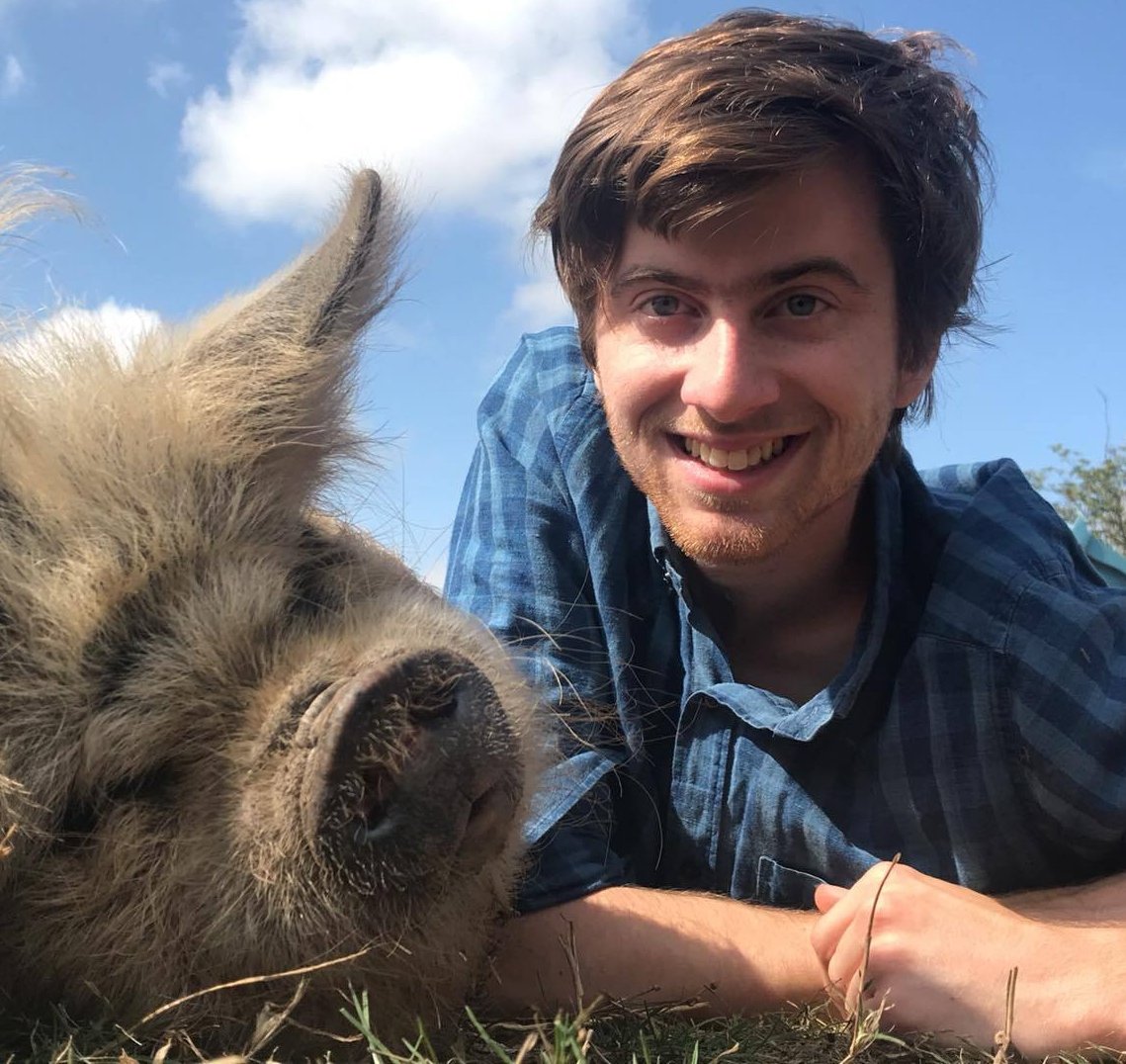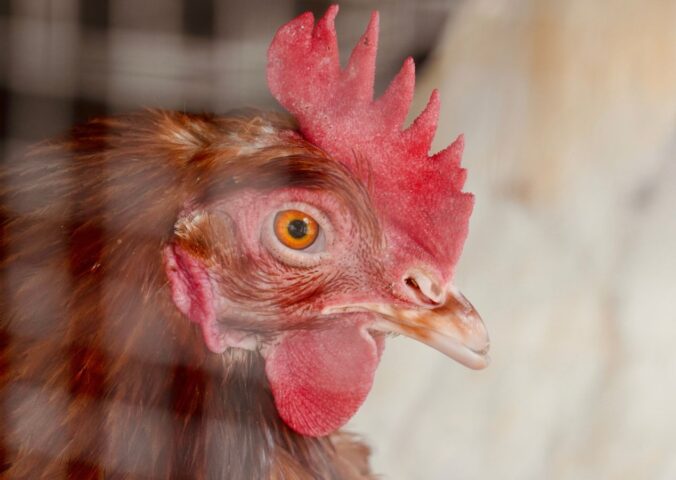Local campaigners have successfully ensured that a road crossed by toads, frogs, and newts will once again be closed for the busiest six weeks of the breeding season.
Charlcombe Lane in Bath, UK, will stay shut until March 25. During this time, thousands of amphibians will venture across the road to reach their breeding lake in a valley below.
Bath and North East Somerset Council has agreed to close the road every spring since 2003. Local volunteers from Charlcombe Toad Rescue Group oversee the crossings and help toads, frogs, and newts get to safety.
Toad in the road

Roads crossing migration routes are one of the key drivers of falling toad populations in the UK.
Amphibians generally migrate after dusk in February and March. Their small size and color make them extremely vulnerable when vehicles are on the road.
The Natural Environment and Rural Communities Act 2006 means that all public bodies have a “biodiversity duty.” Road closures give amphibians a better chance of making it across safely.
Action for nature
Roads are not the only threat to amphibians in the UK. Another major reason for their declining population sizes is loss of land habitats as a result of intensive farming. Likewise, pollution from mega-farms is a major threat to their water habitats.
And it is not only toads who are at risk. A report last year found that one in six species are at risk of becoming extinct in the UK. Human activities, from road building to farming, are posing a significant risk to the UK’s natural life and biodiversity.
With the impacts of the climate crisis becoming ever harder to ignore, there is an increased focus on the major culprits. These are fossil fuels and animal agriculture. For individuals looking to make a difference, switching to a plant-based diet has been shown to be the most effective personal action.






